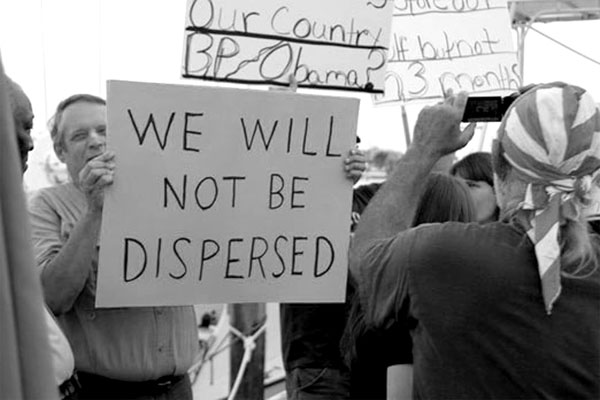by Pauline M. Alvar
 Only $5 billion of the $20 billion “set aside” for victims of the BP oil disaster has been paid out, news met with enthusiasm by shareholders when announced in the summer of 2011. Thousands of claims, including from some of those hardest hit, have been denied, and BP has not paid ONE health-related claim, despite the ongoing health issues of coastal residents, clean-up workers, volunteers, and fisherfolk exposed to the dispersants and oil.
Only $5 billion of the $20 billion “set aside” for victims of the BP oil disaster has been paid out, news met with enthusiasm by shareholders when announced in the summer of 2011. Thousands of claims, including from some of those hardest hit, have been denied, and BP has not paid ONE health-related claim, despite the ongoing health issues of coastal residents, clean-up workers, volunteers, and fisherfolk exposed to the dispersants and oil.
New Orleans-based Advocates for Environmental Human Rights (ehumanrights.org) released a report illustrating the divergent approaches Oil Spill Compensation Czar Kenneth Feinberg used towards oil spill illness claims vs. claims for the 9/11 Victim’s Compensation Fund, which he also managed. The 9/11 Fund required the claimant only prove s/he was in the “vicinity where harmful chemicals were present and had a medically diagnosed illness or disability.” Why a different standard for Gulf Coast oil disaster victims?
In October 2011, Waterkeeper Alliance (waterkeeper.org) released a report illustrating that the spill’s environmental impact will persist for decades, as three-quarters of it still lingers on the Gulf floor. In the same month, BP received the green light to drill four new exploratory wells 200 miles off Louisiana’s coast. Of course BP is “in compliance with the heightened standards that all deepwater activities must meet,” but assurances from a government that cannot enforce even the weakest safety and environmental standards is little comfort, especially when politicians aren’t willing to increase the cap on oil companies’ liability in the event of a spill. It’s no coincidence that politicians on both sides of the aisle are cozy with and receive large campaign contributions from the oil industry.
Paying every claim, providing care to all people sickened by exposure, and cleaning up the Gulf’s fragile ecosystem would be a good start… but would it be enough? BP has no intention of making it right; there is no way any oil company could possibly “make right” the massive and complex system of exploitation our region has endured.
Share